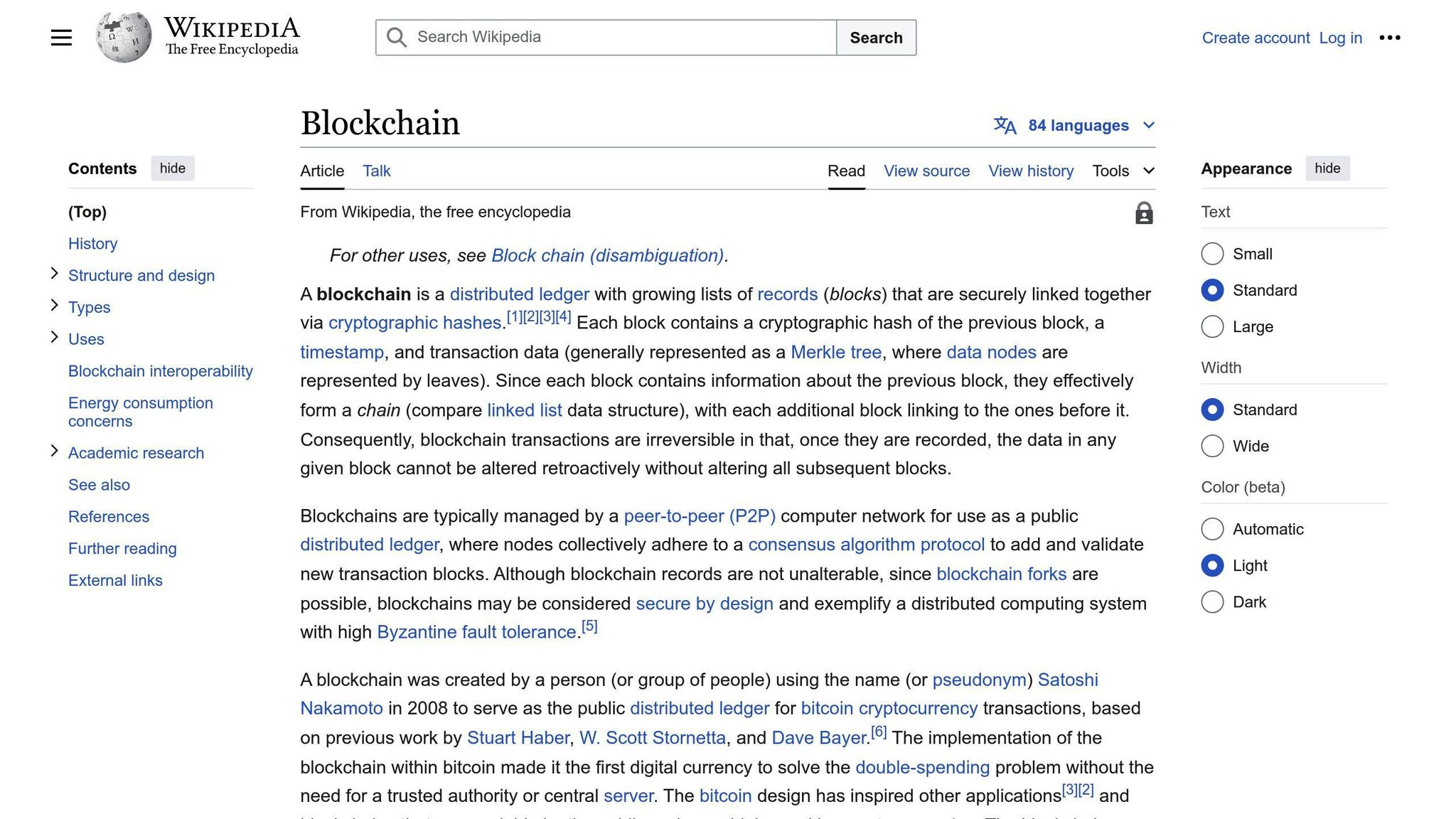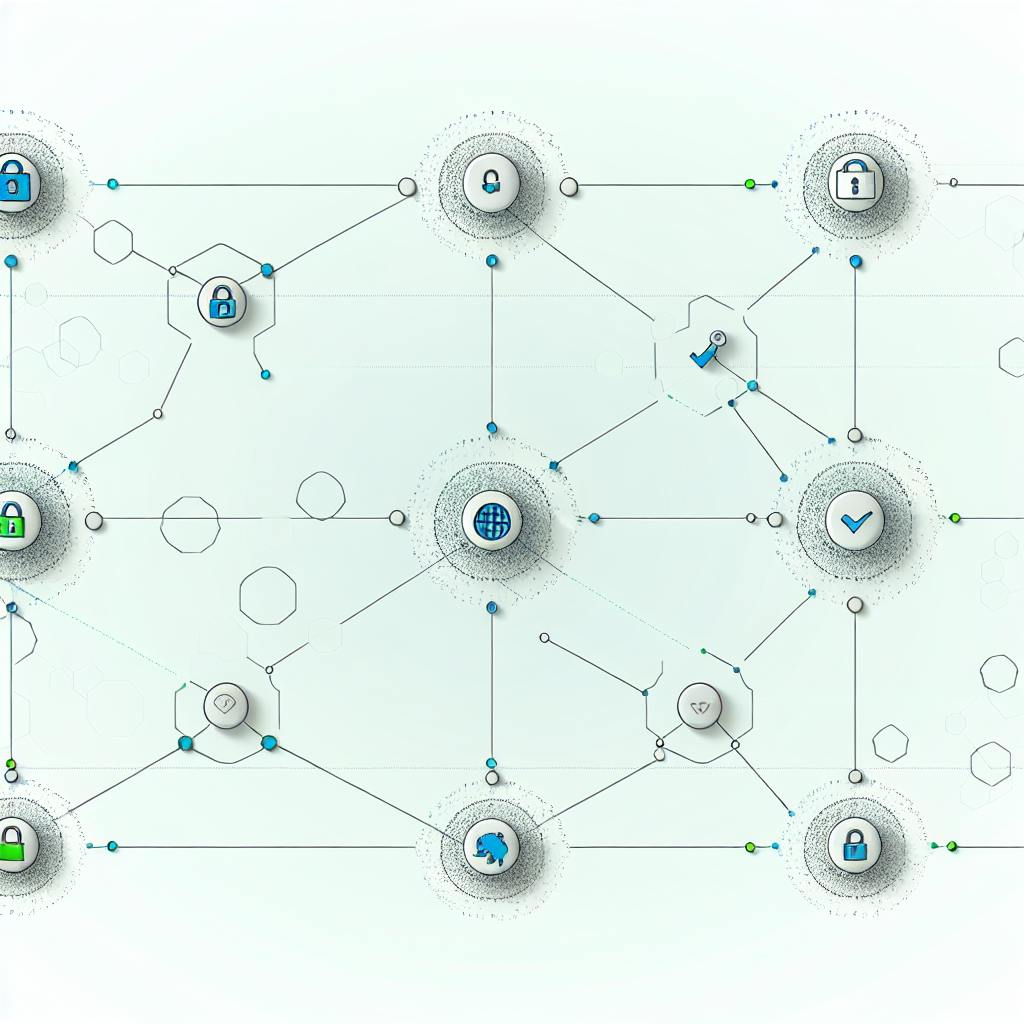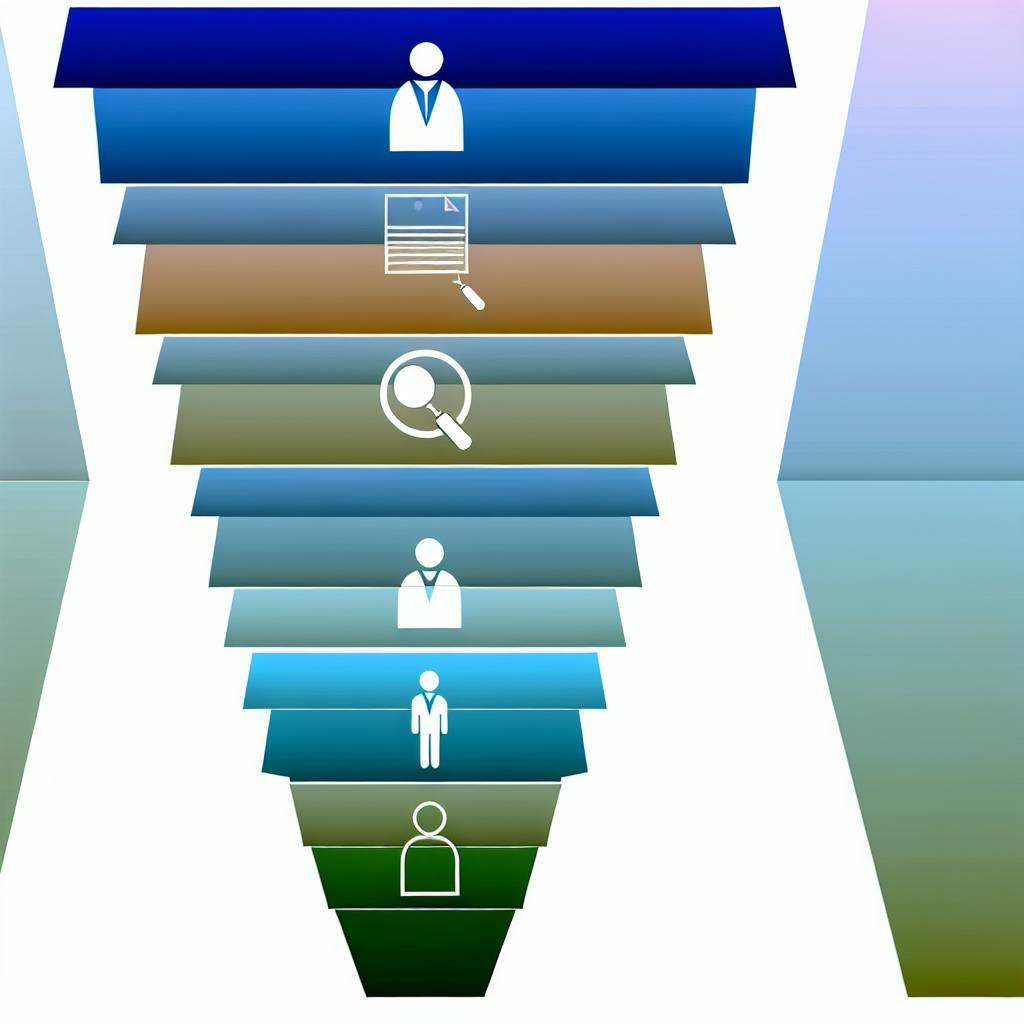Blockchain technology is revolutionizing the recruitment process by addressing long-standing challenges faced by employers and job seekers. This decentralized and secure system offers unmatched openness, efficiency, and trust, ensuring:
- Quick Candidate Verification: Educational qualifications, work experience, and background checks can be quickly verified by accessing tamper-proof records stored on the blockchain, eliminating time-consuming manual processes.
- Secure Data Storage: Candidate information like resumes and personal details are encrypted and stored on the blockchain network, reducing the risk of data breaches and unauthorized access.
- Global Talent Pool: Blockchain transcends geographical boundaries, enabling employers to access a diverse global pool of candidates and expand their reach beyond local markets.
- Cost Savings: Blockchain eliminates the need for intermediaries like job boards and agencies, reducing costs associated with job postings, agency fees, and hiring personnel.
- Faster Hiring: Automated processes like resume screening, interview scheduling, and background checks facilitated by blockchain and smart contracts lead to faster hiring cycles, helping secure top talent quickly.
- Open and Honest Process: Blockchain’s decentralized and unchangeable nature promotes openness and honesty between candidates and employers, reducing the risk of fraud or misrepresentation.
| Traditional Recruitment | Blockchain Recruitment |
|---|---|
| Lengthy background checks | Quick verification of candidate credentials |
| Manual hiring processes | Automated smart contracts |
| Limited talent pool | Access to global candidates |
| Intermediaries and middlemen | Direct employer-candidate connections |
| Data privacy and security risks | Enhanced data protection and control |
While implementing blockchain technology may present initial challenges, such as scalability issues and regulatory uncertainties, the potential benefits are too significant to ignore. Embracing this emerging technology will revolutionize the way we hire and shape the future of work itself, fostering a more transparent, secure, and efficient recruitment landscape.
Related video from YouTube
How Blockchain Changes Hiring

Blockchain technology brings positive changes to the recruitment process by adding security, openness, and efficiency. Here’s how it transforms traditional hiring practices:
1. Secure Candidate Verification
Blockchain allows employers to verify candidate qualifications and work history securely. This information is stored on a tamper-proof, decentralized ledger, eliminating the need for lengthy background checks. Employers can access verified data, ensuring candidates cannot falsify their credentials or experience.
2. Smart Contracts for Streamlined Hiring
Smart contracts on the blockchain automate various recruitment steps, from job postings and candidate screening to offer negotiations and onboarding. These self-executing contracts ensure all parties follow agreed terms, reducing disputes and increasing transparency throughout the hiring journey.
3. Global Talent Access
Blockchain transcends geographical boundaries, enabling companies to evaluate and hire qualified individuals worldwide. With candidate information securely stored on the blockchain, employers can access a global talent pool, fostering diversity and innovation.
4. Decentralized Recruitment Platforms
Decentralized recruitment platforms built on blockchain technology connect employers directly with job seekers without intermediaries. These platforms leverage blockchain’s transparency and trust-building capabilities, creating a more efficient and cost-effective hiring ecosystem.
5. Enhanced Data Privacy and Security
Blockchain’s cryptographic protocols ensure candidate data is securely stored and protected against unauthorized access or manipulation. This addresses data breaches and privacy violations in traditional recruitment by giving candidates control over their personal information and who can access it.
| Traditional Recruitment | Blockchain Recruitment |
|---|---|
| Lengthy background checks | Secure, verified candidate credentials |
| Manual hiring processes | Automated smart contracts |
| Limited talent pool | Access to global candidates |
| Intermediaries and middlemen | Direct employer-candidate connections |
| Data privacy and security risks | Enhanced data protection and control |
1. Traditional Recruitment Challenges
Candidate Data Security
| Traditional Recruitment | Blockchain Recruitment |
|---|---|
| Resumes and personal details shared via email or physical documents, increasing data breach risks | Candidate information securely stored on the blockchain, reducing unauthorized access |
Verification Process
| Traditional Recruitment | Blockchain Recruitment |
|---|---|
| Time-consuming manual background checks, reference verifications, and credential validations, prone to errors and delays | Streamlined verification of candidate qualifications, work history, and background checks on the blockchain |
Recruitment Costs
- Job postings, agency fees, and hiring personnel can be costly, especially for small and medium-sized businesses
- These costs can significantly impact an organization’s hiring budget
Time Efficiency
- Slow and inefficient process involving numerous manual steps like resume screening, scheduling interviews, and conducting background checks
- Can result in prolonged hiring cycles, detrimental in competitive job markets
Global Reach
- Typically limited to local or regional talent pools
- Restricts access to a diverse and global pool of candidates for specific roles
Transparency and Trust
- Lack of transparency and trust in the process
- Candidates may hesitate to share sensitive information due to data privacy and security concerns
- Employers may struggle to verify the authenticity of provided information
sbb-itb-32d91a1
2. Blockchain-based Recruitment
Candidate Data Security
- Candidate details like resumes and personal information are encrypted and stored on the blockchain network
- Only authorized parties can access and verify the data
- Reduces risks of data breaches and unauthorized access
Verification Process
- Blockchain enables quick verification of candidate:
- Qualifications
- Work history
- Background checks
- Educational credentials, certifications, and employment records are securely stored on the blockchain
- Eliminates time-consuming manual verification processes
| Traditional Recruitment | Blockchain Recruitment |
|---|---|
| Time-consuming manual background checks | Quick verification of candidate credentials on the blockchain |
Recruitment Costs
- Blockchain eliminates need for intermediaries like job boards and agencies
- Direct employer-candidate connections reduce costs associated with:
- Job postings
- Agency fees
- Hiring personnel
Time Efficiency
- Blockchain automates steps like:
- Resume screening
- Interview scheduling
- Background checks
- Smart contracts streamline processes
- Faster hiring cycles help secure top talent quickly
Global Reach
- Blockchain transcends geographical boundaries
- Employers can access a global pool of candidates
- Increases diversity in the candidate pool
Transparency and Trust
- Blockchain’s transparency and immutability foster trust
- Candidates confident their information is secure and accurate
- Employers trust the authenticity of candidate credentials
- More equitable and trustworthy hiring process
Pros and Cons
Blockchain technology offers several advantages and potential drawbacks for recruitment processes. Here’s a comparison of the key pros and cons:
Pros
| Benefit | Explanation |
|---|---|
| Open and Honest Process | Blockchain’s decentralized and unchangeable nature promotes openness and honesty between candidates and employers. All records are securely stored and verifiable, reducing the risk of fraud or misrepresentation. |
| Secure Data Storage | Candidate information like resumes, credentials, and personal details are encrypted and stored on the blockchain network, ensuring data privacy and reducing the risk of breaches or unauthorized access. |
| Quick Verification | Educational qualifications, work experience, and background checks can be quickly verified by accessing the tamper-proof records stored on the blockchain, eliminating time-consuming manual verification processes. |
| Cost Savings | Blockchain eliminates the need for intermediaries like job boards and agencies, reducing costs associated with job postings, agency fees, and hiring personnel. Direct employer-candidate connections streamline the process. |
| Faster Hiring | Automated processes like resume screening, interview scheduling, and background checks facilitated by blockchain and smart contracts lead to faster hiring cycles, helping secure top talent quickly. |
| Global Talent Pool | Blockchain transcends geographical boundaries, enabling employers to access a diverse global pool of candidates and expand their reach beyond local markets. |
Cons
| Drawback | Explanation |
|---|---|
| Implementation Costs | Adopting blockchain technology for recruitment can be costly, requiring significant investments in infrastructure, training, and integration with existing systems. |
| Scalability Issues | As blockchain networks grow, scalability issues may arise, potentially impacting performance and efficiency, especially for large-scale recruitment processes. |
| Data Privacy Concerns | While blockchain offers enhanced security, there are potential risks associated with storing sensitive candidate data on a decentralized network, raising privacy concerns. |
| Lack of Standards | The absence of industry-wide standards and protocols for using blockchain in recruitment can lead to compatibility issues and hinder widespread adoption. |
| Regulatory Uncertainty | The legal and regulatory landscape surrounding blockchain technology is still evolving, creating uncertainty and potential compliance challenges for organizations. |
| Resistance to Change | Adopting blockchain-based recruitment processes may face resistance from stakeholders accustomed to traditional methods, requiring change management efforts. |
It’s important to carefully evaluate the potential benefits and drawbacks of implementing blockchain technology in recruitment processes, considering factors such as organizational needs, resources, and industry-specific requirements.
The Future of Hiring
The hiring process is set for a major shift with the integration of blockchain technology. This decentralized and secure system offers unmatched openness, efficiency, and trust, addressing long-standing challenges faced by employers and job seekers.
Blockchain’s tamper-proof nature ensures the accuracy of candidate credentials, eliminating the risk of false claims or misrepresentation. Employers can quickly verify educational qualifications, work experience, and background checks, speeding up the hiring cycle and securing top talent faster.
Furthermore, blockchain breaks down geographical barriers, enabling organizations to access a global talent pool, expanding their reach beyond local markets. This not only increases diversity but also provides access to a broader range of skills and expertise.
As blockchain adoption in recruitment grows, we can expect a more open, honest, and cost-effective hiring process. The direct employer-candidate connection facilitated by blockchain will lead to significant cost savings, benefiting organizations of all sizes.
While implementing blockchain technology may present initial challenges, such as scalability issues and regulatory uncertainties, the potential benefits are too significant to ignore. Embracing this emerging technology will revolutionize the way we hire and shape the future of work itself, fostering a more transparent, secure, and efficient recruitment landscape.
Advantages of Blockchain in Hiring
| Benefit | Explanation |
|---|---|
| Open and Honest Process | Blockchain’s decentralized and unchangeable nature promotes openness and honesty between candidates and employers. All records are securely stored and verifiable, reducing fraud or misrepresentation risks. |
| Secure Data Storage | Candidate information like resumes, credentials, and personal details are encrypted and stored on the blockchain network, ensuring data privacy and reducing breach or unauthorized access risks. |
| Quick Verification | Educational qualifications, work experience, and background checks can be quickly verified by accessing the tamper-proof records stored on the blockchain, eliminating time-consuming manual verification processes. |
| Cost Savings | Blockchain eliminates the need for intermediaries like job boards and agencies, reducing costs associated with job postings, agency fees, and hiring personnel. Direct employer-candidate connections streamline the process. |
| Faster Hiring | Automated processes like resume screening, interview scheduling, and background checks facilitated by blockchain and smart contracts lead to faster hiring cycles, helping secure top talent quickly. |
| Global Talent Pool | Blockchain transcends geographical boundaries, enabling employers to access a diverse global pool of candidates and expand their reach beyond local markets. |
Potential Challenges
| Drawback | Explanation |
|---|---|
| Implementation Costs | Adopting blockchain technology for recruitment can be costly, requiring significant investments in infrastructure, training, and integration with existing systems. |
| Scalability Issues | As blockchain networks grow, scalability issues may arise, potentially impacting performance and efficiency, especially for large-scale recruitment processes. |
| Data Privacy Concerns | While blockchain offers enhanced security, there are potential risks associated with storing sensitive candidate data on a decentralized network, raising privacy concerns. |
| Lack of Standards | The absence of industry-wide standards and protocols for using blockchain in recruitment can lead to compatibility issues and hinder widespread adoption. |
| Regulatory Uncertainty | The legal and regulatory landscape surrounding blockchain technology is still evolving, creating uncertainty and potential compliance challenges for organizations. |
| Resistance to Change | Adopting blockchain-based recruitment processes may face resistance from stakeholders accustomed to traditional methods, requiring change management efforts. |




